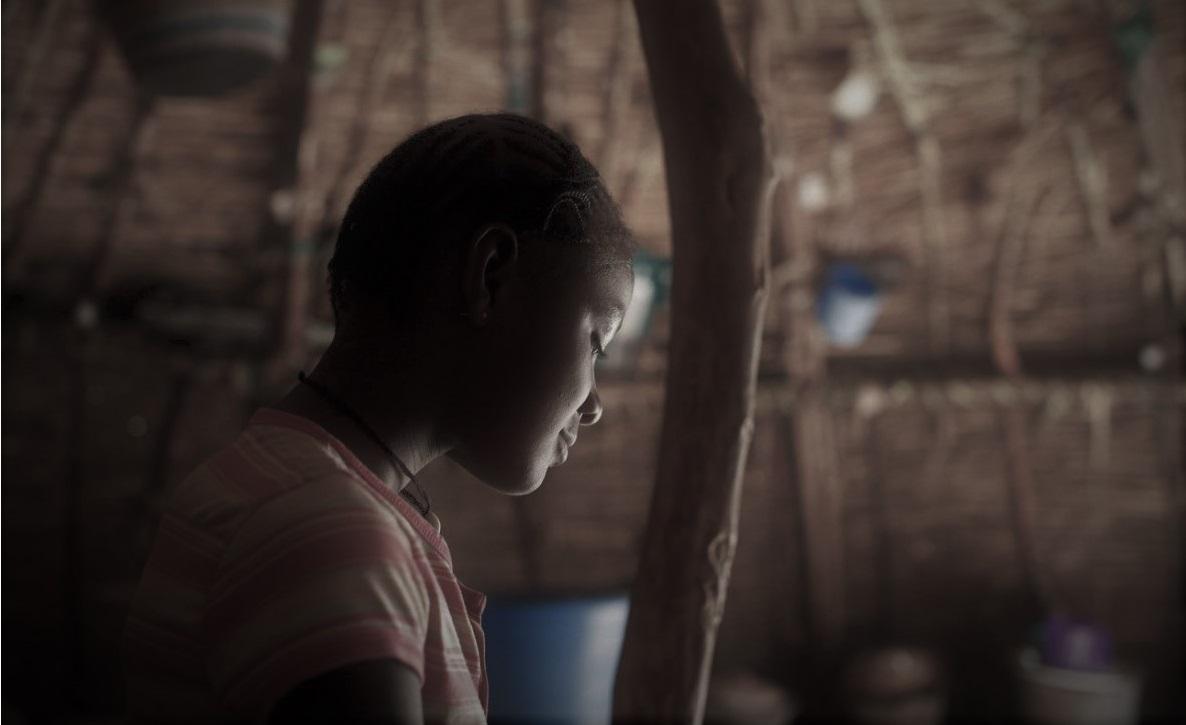
Meskerem Tesfaye, a mother of two who is expecting another child, returned home after attending service at St. Mary's Church in the Ethiopian capital Addis Ababa.
The living room was filled with the fragrant smell of incense. The floor was covered with loose grass as part of the traditional Ethiopian coffee ceremony for get-togethers, and coffee was ready.
St. Mary is a patron saint of Tesfaye and her family. As the Ethiopian Orthodox family was celebrating their patron saint's day, Tesfaye's 12-year-old daughter, Tutu Bezabhe, affectionately hugged her.
Tesfaye is among the 65 percent of Ethiopian women aged 15-49 who has suffered from Female Genital Mutilation (FGM), which is widely practiced.
She reluctantly began recounting her ordeal, which took place nearly 26 years ago in a small rural town in southern Ethiopia.
"I was tied to a chair and my mother put a piece of cloth on my face,” she said. “It was the most brutal, life-threatening moment in my life." Tesfaye choked up with tears and continued.
“I regained consciousness after two days in a hospital, and my mother and father were crying with joy. This happened on St. Mary's day."
“The pain lasted for a long time, and the cutting had negatively impacted my relations with my family and the society for a long time,” she said.
Her daughter, Bezabhe, who was ordered to stay put, rushed into the living room. Tesfaye hugged her and stared at her, saying, “This will not happen to you!” - Widely practiced
Ethiopia is the second-most populous nation in Africa after Nigeria with an estimated 110 million people. Women account for 50.2 percent of the population.
Zenebe Akalu, an expert with the Ethiopian Ministry of Health, said that early marriage and FGM are harmful traditional practices with wide-ranging health risks.
Teen pregnancy and fistulas are the most common consequences of child marriage in the country.
Meanwhile, “FGM is an age-old integral part of cultures and religions in Ethiopia,” Akalu said.
“The practice is essentially gender-based violence against girls and women.”
According to Akalu, due to concerted multi-sectoral efforts over the past 15 years, the prevalence rates of child marriage and FGM have declined.
“The FGM prevalence rate among girls and women aged 15-49 years declined from 74 percent in 2005 to 65 percent in 2016,” he noted.
With regards to early marriage, which takes place before the age of 18, Akalu said the percentage of women aged 20-24 years who were married before the age of 18 had declined from 60 percent in 2005 to 40 percent in 2016.
However, according to Akalu, in Ethiopia's Somali and Afar regions, progress to reduce and eliminate early marriage and FGM was not satisfactory.
"In the Afar region, child marriage currently stands at 67 percent, while 91 percent suffer from FGM,” he noted, adding that in the Somali region, child marriage remained at 50 percent and 90 percent undergo FGM.
Ethiopia launched a national plan in 2017 and aims to end child marriage and FGM in 2025.
“We banned medicalization of FGM in all public and private health institutions in 2017, and the country's criminal code of 2005 had criminalized the practice,” Akalu said.
Persistence of demands Tesfaye was adamant that her 12-year-old daughter would not be circumcised. But she noted that some members of the family often interfere with her decisions.
"Any time I meet my daughter's grandmother or elderly relatives, they persistently urge me to take her to a circumcision," she said. Akalu cautioned that the national plan for eliminating child marriage and FGM by 2025 was an ambitious project.
"But we are absolutely committed to achieving it,” he said.
According to UNICEF, at least 200 million girls and women have undergone FGM in 30 countries in Africa, the Middle East and Asia, where the practice is concentrated.